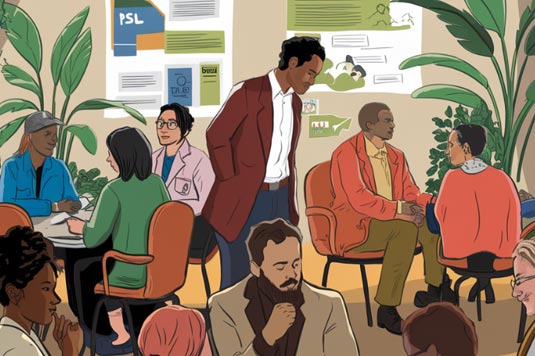
How can tailored insights transform industries, shape policy, advance research, and enhance community engagement? This question was at the heart of the recent PSLifestyle workshop series, where stakeholders from various sectors gathered to explore actionable solutions for a sustainable lifestyle.
The Lifestyle Test, developed as part of the PSLifestyle project, has emerged as a powerful tool that identifies key sustainability hotspots and consumer behaviour patterns across Europe. Since its launch in 2023 in eight European countries, over 300,000 tests have been taken, resulting in more than 27,000 personalised plans aimed at reducing individual footprints.
In October and November 2024, the project team conducted targeted workshops with industry leaders, policymakers, academics, and civil society organizations (CSOs) using the input from the Lifestyle Test as a starting point. Each session focused on topics relevant to the participants, showcasing the Lifestyle Test’s potential applications across diverse contexts.
Key Insights from the Workshops:
- Food and Circular Economy: Food emerged as one the most relevant topics for participants of the industry-focused workshop, alongside Circular Economy and product repair services. They discussed the possibility of using the tool for employee engagement or paring it with demographic data to gather further insights into specific consumer segments for sustainable product development and communication.
- Policy Development: The Lifestyle Test was recognised as a valuable tool for understanding citizens’ motivations, identifying barriers, and supporting the creation of informed policies. Participants also explored its potential as a tool for policy makers to communicate sustainability goals and serve as role models for change.
- Advancing Research: Academics highlighted research gaps in sustainable lifestyles and proposed new ideas, noting the Lifestyle Test’s practicality and ease for data collection. Suggestions included expanding insights into specific behaviours and barriers to change, addressing targeted research questions, and increasing engagement with less environmentally inclined individuals to broaden the perspective.
- Community Engagement: CSOs focused on strategies to bridge the gap between people and sustainability. Suggestions included embedding the Lifestyle Test into school curriculums, training programs, and community initiatives to foster broader engagement. The participants also emphasised the importance of shared responsibility for sustainability, highlighting the potential of the Lifestyle Test to proactively share data with decision-makers and promote balanced accountability.
A Shared Vision for Sustainability
“The workshops underscored the interconnectedness of various actors, highlighting the need for a coordinated effort to achieve successful outcomes in sustainability,” says Arlind Xhelili, Project Manager at the CSCP, responsible for overseeing our efforts in the PSLifestyle project. “By considering consumer needs and the practicality of real-world applications, we can develop solutions that are easier to be accepted and integrated into daily life.”
For additional information about the PSLifestyle project and upcoming events and initiatives, please contact Arlind Xhelili.
Image source ideogram.ai
Leave a Reply